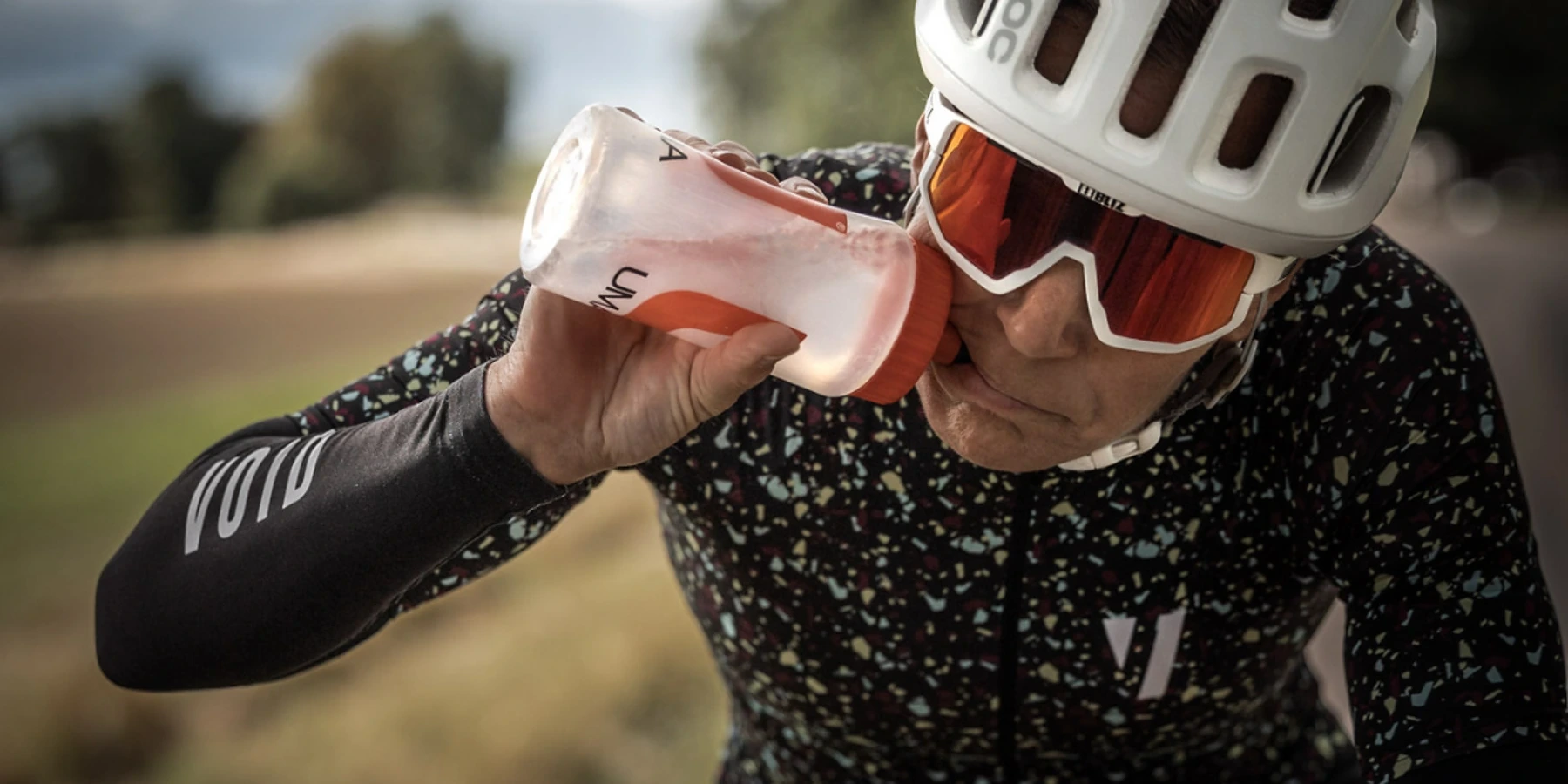
Why should I consume sports nutrition during training?
3.5min reading
Why should I consume sports nutrition during training?
You've probably heard an experienced endurance athlete say things like, "You don't need energy for anything under 4 hours", "Real athletes just hydrate with water, you don't need carbs", or "You have to train your body to use its fat stores." The adage "it works for me" combined with experience in the sport can carry weight when receiving advice. But what does the research actually say?Let's start by addressing the question: Why should I replenish with carbohydrates during my workout?
The Basics
Regardless of the sport, our bodies require "fuel" to power us through training and competitions. This fuel comes from both fats and carbohydrates. Inside our muscle cells, these are converted into energy (ATP). The consumption ratio of fats to carbohydrates varies depending on the level of exertion, but there's always interplay. The higher the intensity, the more carbohydrates our bodies burn. This is because glycogen (stored carbohydrates) requires 7% less oxygen to produce energy (ATP) compared to fatty acids. Hence, fatty acids aren't used as efficiently for energy when oxygen isn't abundant.
Though we have almost unlimited fat stores, we can only store carbohydrates in our muscles and liver for about 1-2 hours of high-intensity activity, approximately 500g. In total, glycogen makes up only 4% of the body's energy stores. Yet, it's the dominant fuel source for the majority of physical activity, especially if you're aiming to do more than just leisurely stroll or glide during competitions.
Athletes who start with full glycogen stores will, after 2 hours of intense training, reach levels where muscle efficiency drops drastically due to inhibited calcium handling in muscle cells. Hitting the wall becomes imminent! As glycogen stores deplete and exercise intensity drops, we use more fatty acids for energy.
Carbs are Good, but Shouldn't We Also Focus on Fat Burning?
Having a body efficient at using fat for fuel is certainly advantageous. However, as mentioned above, our bodies almost always use a mix of fats and carbs during activity. Part of the adaptive response from endurance training is improving your body's ability to use fat as a secondary fuel source, while simultaneously increasing its capacity to store glycogen when energy is replenished during workouts.
Recent studies suggest that when athletes train without consuming energy or follow a low-carb diet, they become better at using fats as fuel. However, most of these studies also indicate that this doesn't necessarily lead to performance enhancement. The body is adaptable. When given more fats, it becomes proficient at using them. When provided with more carbohydrates, it optimizes their absorption and use.
One of the most significant and frequently cited studies on this topic was published last year by Louise Burke. This research is among a series by Burke and her team investigating the relationship between low-carb diets and athletic performance. In their latest study, elite race walkers either consumed a high-carb diet or a low-carb, high-fat (LCHF) diet for 25 days. They were tested both before and after in competition-like conditions. Results showed that the LCHF group, though exhibiting increased fat oxidation, also had higher oxygen costs at race pace, leading to a significant performance drop compared to the high-carb group.
Conclusion
If your sole objective is to enjoy the activity and maintain health, with no emphasis on improving performance, you don't "need" to intake carbs or other energy sources during your workouts. You might tire out quicker and hit the wall more frequently, not maximizing your potential, but that's okay. If, however, your goal is performance enhancement, carbohydrate intake becomes crucial for maximizing training outputs, faster recovery, and maintaining training consistency.
Even if you don't feel you need energy during, say, a 3-hour endurance session, you'll perform better and recover quicker with energy intake. A session involving intervals the next day won't suffer due to depleted glycogen stores, which becomes more crucial as you increase your training volume. Of course, not all energy sources need to be sports-specific. During a relaxed long-distance session, a banana, cinnamon bun, or candy can also serve as carbohydrate replenishments. If the result is you maintaining a slightly faster pace, your body will reward you directly.
Why Should I Replenish with Carbohydrates During My Workout?
In conclusion, carbohydrates are needed for efficiency reasons. They're more energy-efficient, require less oxygen to use, and can be replenished during activity, ensuring you always have "race fuel in the tank" and maximizing your training..
